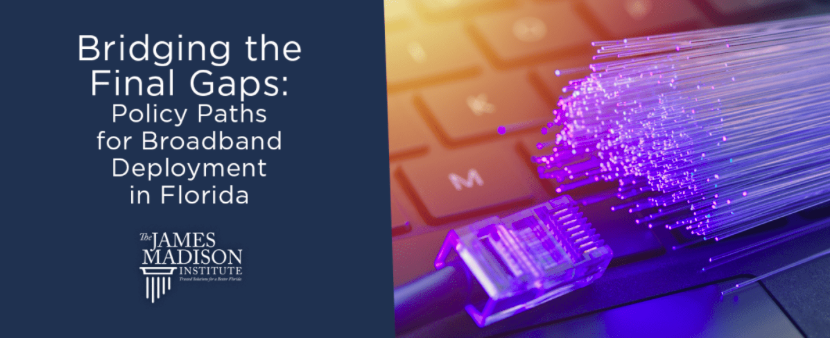China has garnered much attention given its position as a major economic competitor to the United States, and specifically as a competitor in telecommunications, technology and innovation. The national security implications for the use of Chinese technology have also caught the attention of policy-makers, for over a decade.
In 2012 the House of Representatives Intelligence Committee released the “Investigative Report on the U.S. National Security Issues Posed by Chinese Telecommunications Companies Huawei and ZTE.” The public portion of the report found that “the risks associated with Huawei’s and ZTE’s provision of equipment to U.S. critical infrastructure could undermine core U.S. national-security interests.”
Eventually, in 2021, the Federal Communications Commission (FCC) finalized a program to pay telecom providers to tear out and replace equipment from Chinese telecom companies considered a national security risk by the U.S. government. Additionally, the Biden administration has on a couple occasions added specific Chinese technology companies to its “Entity List,” restricting U.S. firms from dealing with the companies listed.
But, China’s digital aspirations are far from ended.
As part of its intention to create a China-centered digital future, the country continues its “Digital Silk Road” initiative to emplace next generation digital connectivity abroad and by doing so to extend its technological influence, pushing itself closer to becoming a technological superpower. The ambition is even greater though, wrapping global financial markets into this plan.
In the midst of this global development Congress seems willing to allow the U.S.’s current innovation edge and global connected world leadership falter. Congress allowed the FCC’s auction authority to lapse, authority it has had since 1993. A critical piece for the continued U.S. edge is 5G, the next generation of global advanced wireless telecommunications, and without more spectrum 5G will stand still. Much is on the line as Congress allows our spectrum pipeline to dwindle.
Contrast the Congressional auction authority approval balk with China, which has greatly padded its lead on the United States by opening huge swaths of its spectrum for licensed mobile use. The obvious Chinese intent is to move ahead not just in 5G, but also in creating an environment for the development of the types of cutting-edge technologies that depend on such high-performance connectivity.
The Congressionally imposed U.S. spectrum shortage will hinder technological innovation and clear the path for China to assert global leadership in the connected future, threatening the economic and national security of the United States. If the United States is not competitive in needed advanced technologies, other countries will have no alternative to the Digital Silk Road. Thereby Beijing will gain the upper hand when it comes to setting standards for 5G networking, the internet, and perhaps even digital governance and ethics.
The economic effect on the country of surrendering its long-held technological leadership can hardly be overstated. The national security risks interrelate with the economic risks. As CSIS writes in its recent report, “This is a potential long-term national security catastrophe.”
Without leadership, and hard work, our economy and the provision of good middle-class careers would be at risk, not to mention our ability to project economic and military power around the world.
Congress has the choice before it when they return from their August recess. They must choose either to stand by and allow The Digital Silk Road to continue its rapid build out without a competitor, or to make it a priority to renew the FCC’s auction authority, giving the U.S. Information Superhighway its best chance of continuing to lead on the world stage. As the Chinese proverb goes, “If you work hard enough at it, you can grind even an iron rod down to a needle.” That is, anything is possible if you are willing to put in the work.

Industry Helping Government Help People
Businesses, or industry in general, can help the government help people outside of the traditional public-private partnership model. While some may dismiss this help or others may criticize efforts outside of the traditional models, businesses in certain scenarios can...

Bridging the Final Gaps: Policy Paths for Broadband Deployment in Florida
The broadband industry has invested billions of dollars in covering the country with ever faster, ever more ubiquitous broadband. From one generation of broadband to the next, the country continues to benefit from private industry best serving its customers with new...

GOP. Government Ovation Party?
Almost predictably, when Democrats take control of a legislature in a state, the governor’s mansion, a chamber of the U.S. Congress or the White House, the first volley of political rhetoric is that the party of big government is back. They will tax, grow regulation...

To Defend Conservative Media, GOP Must Defend the Constitution
By Rick Santorum Republicans have long understood that the modern Democratic Party has little patience for free expression. Leftist speech police shut down debate on college campuses; biased media outlets like MSNBC lambasted President Trump’s language instead of...

The Golden Age of Streaming Has Begun, Enjoy Every Episode
Less than two weeks before the release of “Wonder Woman 1984,” Roku Inc. and WarnerMedia had yet to reach a deal that would allow for the streaming of the movie or any other HBOMax content on Roku. Reportedly, Roku had set tough terms and WarnerMedia was refusing to...

IEI Files Amici Curiae Brief on Massachusetts Port Authority Vs. Turo Inc.
Massport v. Turo - Brief of amici curiae

The Wonders of 2020
In a year like 2020 it can be easy to miss the wonder in so much around us, including the amazing innovations happening even during the adversity we have faced. However, without the proper public policy much of the advancement would have been slower at least, lost at...

Policy Gone Viral: Andrea O’Sullivan and Bartlett Cleland Talk Telecom
On this episode of Policy Gone Viral, James Madison Institute's Andrea O'Sullivan talks with Bartlett Cleland, Executive Director of the Innovation Economy Institute. Click Here to WATCH the Interview

FCC Chairman Pai Proposes Two Big Wins for American Innovation
FCC Chairman Pai has included an item on the November 18th meeting agenda to free up a slice of spectrum for public use. No longer will it continue to be hoarded by the federal government and left unused. The spectrum in question is the 5.9 band which has been held...

Child Safety for the Virtual Era
Because of the response to COVID, a variety of local and state governments have required many of the nation’s children to attend class online. To try to maintain some sort of social contact many of those same kids are increasingly using electronic devices of various...


Recent Comments